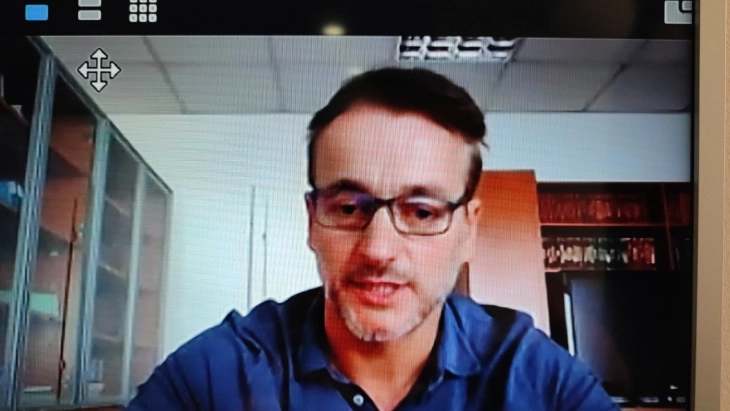Kuzevski: New law, protocol 223, transposition of police regulation crucial for personal data protection coordination with EU

Skopje, 25 August 2021 (MIA) – In order to coordinate our legislation in the area of personal data protection with European legislation, we needed the Law on Protection of Personal Data which came in force on Wednesday, as well as the ratification of Protocol 223 of the Convention 108 and the transposition of the Police Directive, which has been completed, and the law has been sent to Parliament. The country also fulfilled the EU’s recommendations from last year, Igor Kuzevski, deputy director of the Personal Data Protection Agency told a training course on Wednesday, organized by the Media Information Agency and the Personal Data Protection Agency within MIA’s Journalism School.
“The law has been implemented, Parliament has ratified Protocol 223 and we’ve drafted the law on transposing the Police Directive. The law is now formally complete, it was adopted by the government 2-3 weeks ago and it’s been delivered to Parliament. We’re now waiting for its adoption. It’s a law with a European flag because it transposes the EU Police Directive. Once we adopt this law, we can say that we’ve completed the puzzle as a country, but only on paper. Then the real job begins, and not just for institutions, because the Law on Transposing Police Regulative will be lex generalis, or a Data Processing Constitution for all prosecution authorities and other laws will have to be coordinated with it,” Kuzevski said.
The need for media to have personal data protection officers, the legality of checking vaccine certificates in cafes and restaurants and the process for those complaining of having been recorded in a public space or event were some of the issues directed towards training instructors.
“The obligation for assigning personal data protection officers has existed since 2010, under the old law. We have a big base of registered data protection officers, and more importantly trained data protection officers. The practice continues under the new law, further accentuated from an aspect of strengthening the status of the data protection officer. These officers will have to be assigned by media houses, because due to our knowledge, you, the media, process your employees’ data, and data from everyone when you share information from the field for which you exist, when you conduct interviews, and you process lots of data, which by definition falls under mass data, and in that case, you need to designate an officer,” Kuzevski stated.
In regard to showing vaccine certificates to ushers in cafes and restaurants, Kuzevski pointed out that the Personal Data Protection Agency has already issued an announcement, in line with German and Croatian experiences, and in consultation with authorities in charge of personal data protection within the EU.
“Visual checks without data collection do not fall under the authority of Law on Data Protection, because this isn't data processing,” Kuzevski said.
He pointed out that according to an article in the Law on Private Security, security agency workers have the right, just like police officers, to check for IDs, and even to temporarily keep them.
MIA and the Personal Data Protection Agency held on Wednesday a personal data protection workshop for journalists, within MIA's Journalism School, with a special focus on the new Law on Protection of Personal Data, which came into effect on Tuesday. Journalists from various media in the country took part in the event.
MIA’s Journalism School kicked off in February 2020 with in-person attendance, but it’s now being held online due to the Covid-19 pandemic. dk/mm







